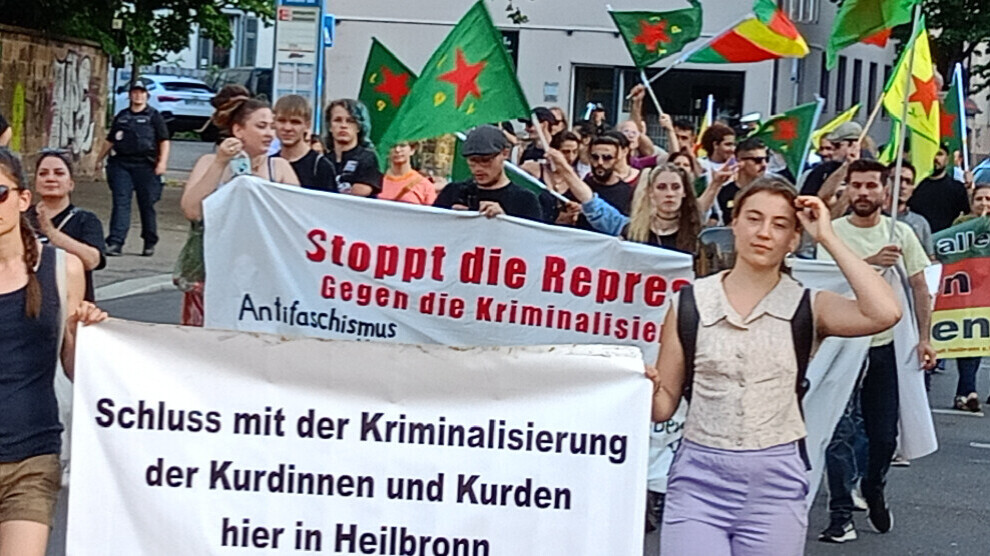Activists in Heilbronn protest increasing criminalization of Kurds
In Heilbronn there were protests against the increasing criminalization of Kurdish activists.
In Heilbronn there were protests against the increasing criminalization of Kurdish activists.

A demonstration against the criminalization of Kurds in Germany took place in Heilbronn on Saturday evening. Under the slogan "We are all 129a/b - stop the repression!" numerous people protested against the search of the Kurdish community center in Heilbronn and several private apartments. During the raids on Thursday, the door of the Kurdish association was broken open. Two activists were arrested in their homes and subjected to identification treatment. Numerous private items, telephones and computers were also confiscated. Pictures of those who died in the liberation struggle were confiscated in the Kurdish Society Center. As those affected reported, the police threatened them with deportation when they entered the club during the search.
The measure was justified with the memorials that had taken place in the past weeks.
The demonstration led from the Theresienwiese to the office of Heilbronner Voice. Banners pointed out the criminalization of Kurds and called for an end to the repression. The reporting in the Heilbronner Voice was criticized in speeches and solidarity was called for. "It is unacceptable that several thousand Kurds live here and are criminalized and racially attacked every day," said a speaker whose home was searched. "In our association we held mourning ceremonies together with relatives of those who died in the war in Kurdistan, and that is not criminal," explained the activist. These events are legitimate and the dead are fighters who were killed with chemical weapons by the Turkish state. "It is not criminal when we open our doors to people who have lost their children in this dirty war," said the speaker, pointing out that Turkey is committing war crimes and is actively supported by Germany.
Increasing 129a/b persecution
In Germany, twelve Kurds are currently in custody or in prison on charges of PKK membership. Activists who are not classified as "party cadres" are also increasingly affected by criminal prosecution under article 129a/b of the penal code.
In addition, Germany relies on the recruitment of informers, immigration sanctions and intimidation in its fight against the Kurdish movement. Kurds who have been living in Germany for decades have had their passports and residence permits withdrawn, and in some cases children have been threatened.